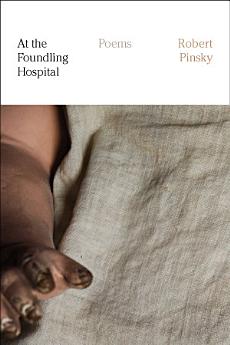At the Foundling Hospital: Poems
মে’ ২০২৫ · Macmillan + ORM
ইবুক
81
পৃষ্ঠা
family_home
যোগ্য
info
reportমূল্যাংকন আৰু পৰ্যালোচনা সত্যাপন কৰা হোৱা নাই অধিক জানক
এই ইবুকখনৰ বিষয়ে
"Since the death of Robert Lowell in 1977, no single figure has dominated American poetry the way that Lowell, or before him Eliot, once did . . . But among the many writers who have come of age in our fin de siècle, none have succeeded more completely as poet, critic, and translator than Robert Pinsky." —James Longenbach , The Nation
With all the generosity and mastery we have come to expect from out three-time Poet Laureate, Robert Pinsky has written a bold, lyrical meditation on identity and culture as hybrid and fluid, violent as well as creative: the enigmatic, maybe universal, condition of the foundling. At the Foundling Hospital considers the foundling soul: its need to be adopted, and its need to be adaptive. These poems reimagine identity on the scale of one life or of human history: from "the emanation of a dead star still alive" to the "pinhole iris of your mortal eye."
What is a particular person? How unique? What is anyone born as? Born with? Born into? The poems of Robert Pinsky's At the Foundling Hospital engage personality and culture as improvised from loss: a creative effort so pervasive it can be invisible.
With all the generosity and mastery we have come to expect from out three-time Poet Laureate, Robert Pinsky has written a bold, lyrical meditation on identity and culture as hybrid and fluid, violent as well as creative: the enigmatic, maybe universal, condition of the foundling. At the Foundling Hospital considers the foundling soul: its need to be adopted, and its need to be adaptive. These poems reimagine identity on the scale of one life or of human history: from "the emanation of a dead star still alive" to the "pinhole iris of your mortal eye."
What is a particular person? How unique? What is anyone born as? Born with? Born into? The poems of Robert Pinsky's At the Foundling Hospital engage personality and culture as improvised from loss: a creative effort so pervasive it can be invisible.
লিখকৰ বিষয়ে
Robert Pinsky is the author of several books of poetry, including Gulf Music, Jersey Rain, The Want Bone, and The Figured Wheel. His bestselling translation of The Inferno of Dante sets a modern standard. He was the Poet Laureate of the United States from 1997 to 2000. Among his awards and honors are the William Carlos Williams Award, the Lenore Marshall Poetry Prize, the PEN/Voelcker Award, the Korean Manhae Prize, and the Lifetime Achievement Award from the PEN American Center. He teaches in the graduate creative writing program at Boston University.
এই ইবুকখনক মূল্যাংকন কৰক
আমাক আপোনাৰ মতামত জনাওক।
পঢ়াৰ নির্দেশাৱলী
স্মাৰ্টফ’ন আৰু টেবলেট
Android আৰু iPad/iPhoneৰ বাবে Google Play Books এপটো ইনষ্টল কৰক। ই স্বয়ংক্রিয়ভাৱে আপোনাৰ একাউণ্টৰ সৈতে ছিংক হয় আৰু আপুনি য'তে নাথাকক ত'তেই কোনো অডিঅ'বুক অনলাইন বা অফলাইনত শুনিবলৈ সুবিধা দিয়ে।
লেপটপ আৰু কম্পিউটাৰ
আপুনি কম্পিউটাৰৰ ৱেব ব্রাউজাৰ ব্যৱহাৰ কৰি Google Playত কিনা অডিঅ'বুকসমূহ শুনিব পাৰে।
ই-ৰীডাৰ আৰু অন্য ডিভাইচ
Kobo eReadersৰ দৰে ই-চিয়াঁহীৰ ডিভাইচসমূহত পঢ়িবলৈ, আপুনি এটা ফাইল ডাউনল’ড কৰি সেইটো আপোনাৰ ডিভাইচলৈ স্থানান্তৰণ কৰিব লাগিব। সমৰ্থিত ই-ৰিডাৰলৈ ফাইলটো কেনেকৈ স্থানান্তৰ কৰিব জানিবলৈ সহায় কেন্দ্ৰত থকা সবিশেষ নিৰ্দেশাৱলী চাওক।








